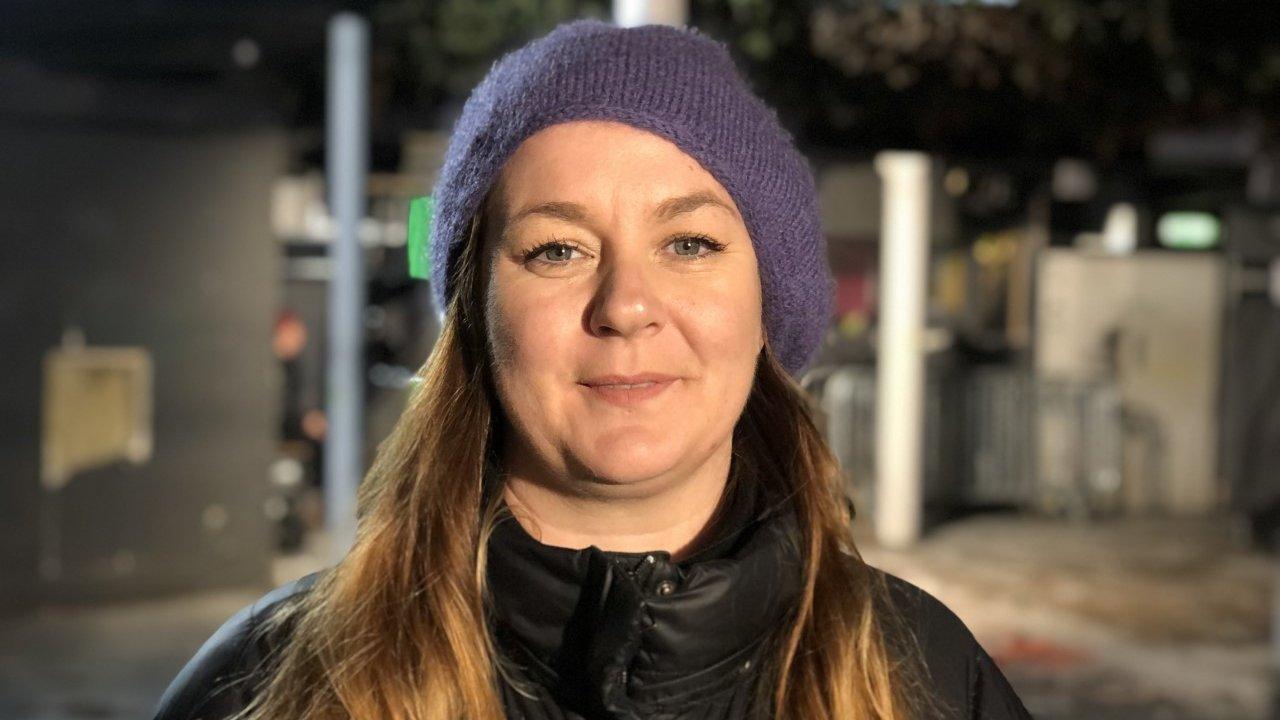Cost of living: Nightclub costs bigger threat than Covid, says report
- Published
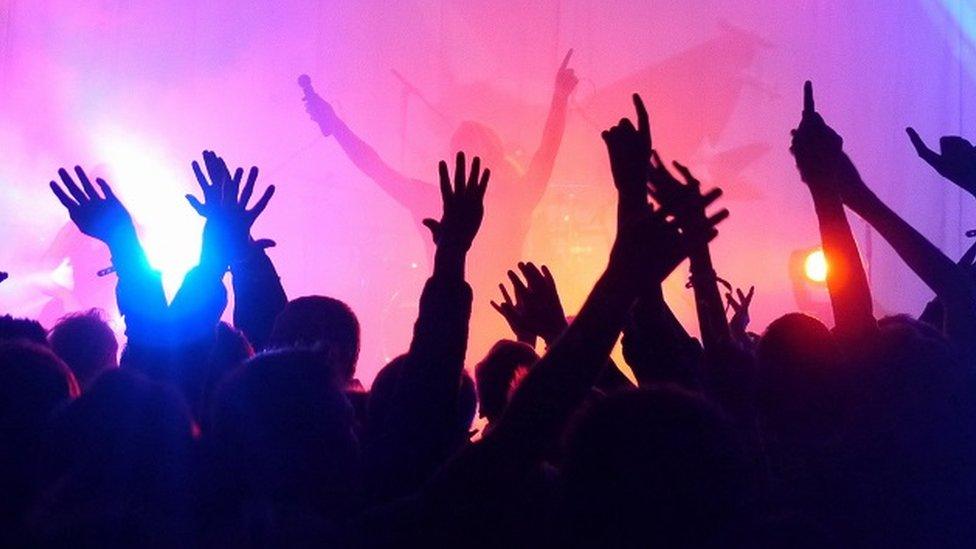
Dance music is one of the UK's favourite genres - but DJs say the support it gets doesn't reflect that
The music, the lights, the sticky dancefloors.
We can all remember - or perhaps we can't - the times we've spent in nightclubs.
But a new report, thought to be the biggest of its kind, has highlighted how many have closed down in the last few years.
It says issues like rising bills and rent costs are why more than 300 nightclubs have shut since the Covid-19 pandemic started.
The report - shown exclusively to BBC Newsbeat - is from the Night Time Industries Association (NTIA) - which represents bars and clubs.
They say the electronic music industry, including concerts, festivals and clubs, is worth more than £2.6bn to the UK economy and want it to be better protected.
'Worried about the future'
You might know Danny Howard from presenting Radio 1's Dance Party.
But he tells BBC Newsbeat he wouldn't be where he is without the clubs he started playing at in his hometown of Blackpool.
"They're all gone now and it's worrying," he says.
"There's less opportunity for upcoming DJs and under-represented artists, but also for ravers getting together with their mates and experiencing those artists."
Though the news isn't good for clubs, it's not all bad for the dance music scene.
The report says the genre is the second most popular in the UK after pop music.
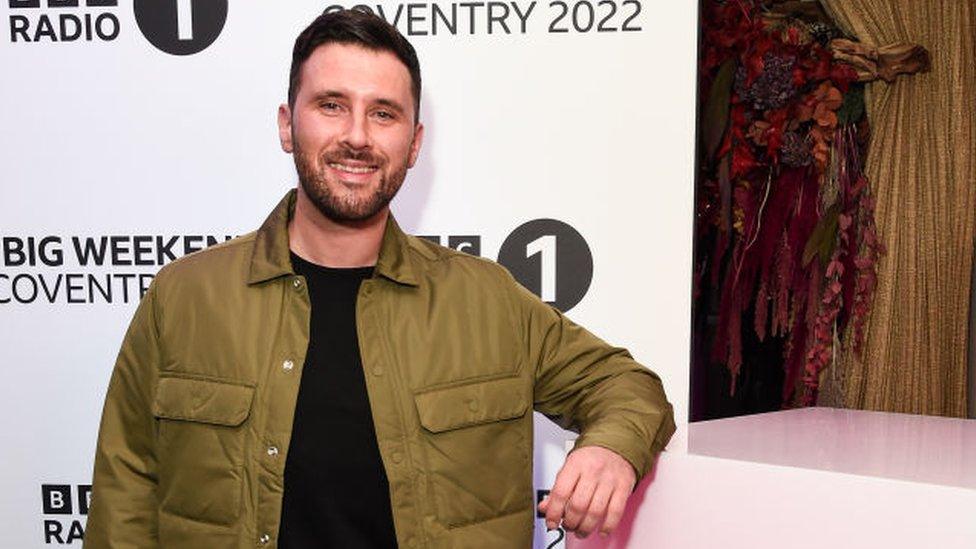
Radio 1's Danny Howard says small venues are the backbone of the UK club scene
But Danny points out we need "venues for the people who have dreams of becoming DJs and artists to perform and to connect with fans".
It's not just clubs that celebrate electronic music.
The genre is the most popular at UK festivals, with 29% of artists performing at them playing dance.
For Danny, that "doesn't match up".
"How can the UK be one of the leading countries in the world in terms of electronic music, without the support?"
'Tougher times than Covid'
Those behind the report say the cost-of-living crisis is tougher than the pandemic, a time when venues received financial help.
They say the bills of smaller venues have risen by an average of over £3,800 while medium businesses face an increase of over £9,600.
The NTIA is now calling on the government to make it easier for clubs to get a licence and more cash help.
The government says they are supporting hospitality, including nightclubs, with "an unprecedented £18bn package of support this winter."
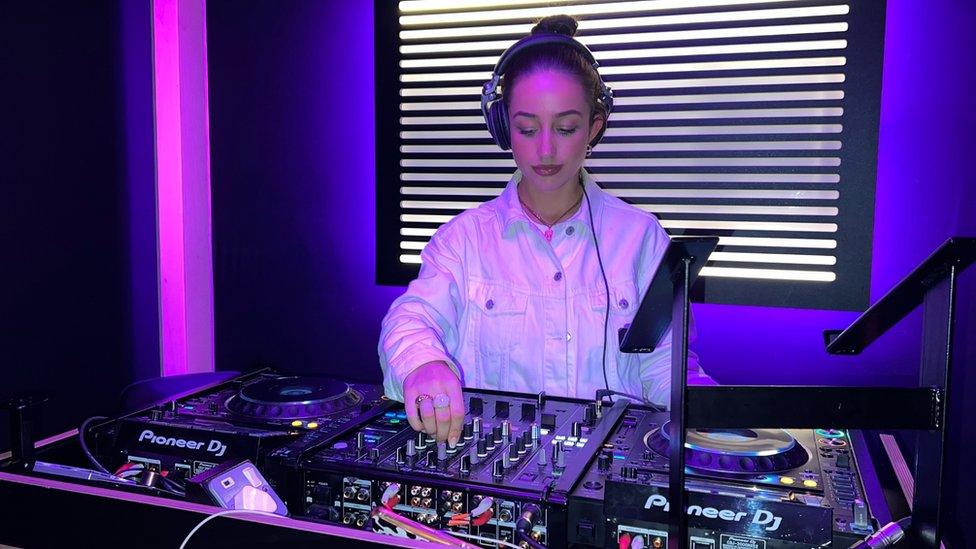
Hannah mainly plays garage and bassline
The rising costs of running clubs - from paying energy bills and rent - is impacting the amount DJs are offered.
Hannah Rose, 28, is from Sheffield. She started DJing in lockdown and now plays at clubs around the country.
But she's noticed her bookings changing.
"I've definitely seen a cut in what people are offering," says Hannah.
"Now venues are wanting to go back to live streams, because they aren't able to pay a fee. It's worrying because it's hard enough to get bookings as it is."
It's something she finds frustrating.
"Club bookers say my sets 'will be good for exposure', but people can't eat out on exposure."
It's not just financial benefits that clubs bring to the economy, but social ones too.
D-Lish is a 24-year-old South Asian DJ. She tells Newsbeat that clubs offer ravers more than just a good night out.
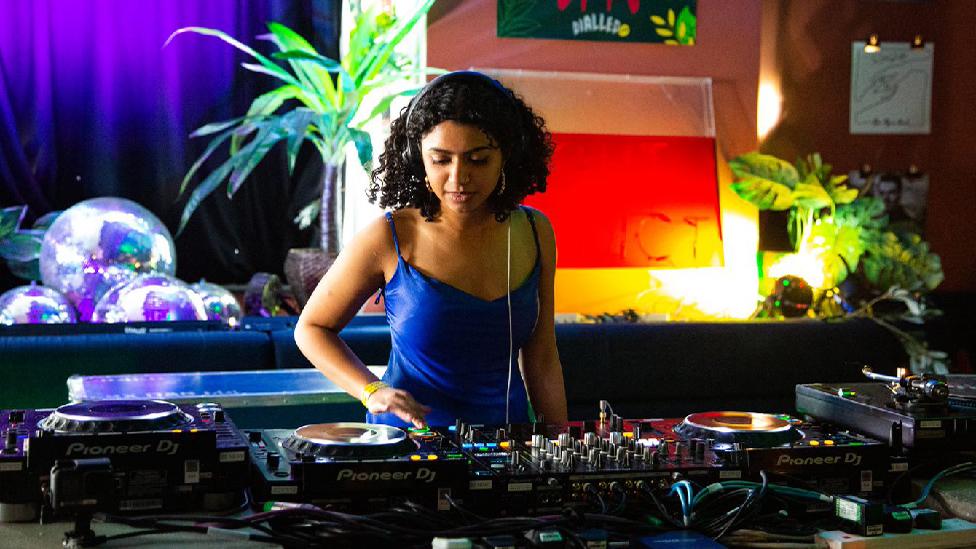
DJ D-Lish thinks smaller acts will be hit hardest
"These spaces are a huge mental support for those who don't feel accepted in mainstream spaces so it's a huge shame."
She also worries about the legacy for up-and-coming DJs.
"We're going to lose a significant part of the DIY scene, because big clubs with big budgets will go straight for established names because they will pack out their spaces".


Follow Newsbeat on Twitter, external and YouTube, external.
Listen to Newsbeat live at 12:45 and 17:45 weekdays - or listen back here.
Related topics
- Published26 August 2022
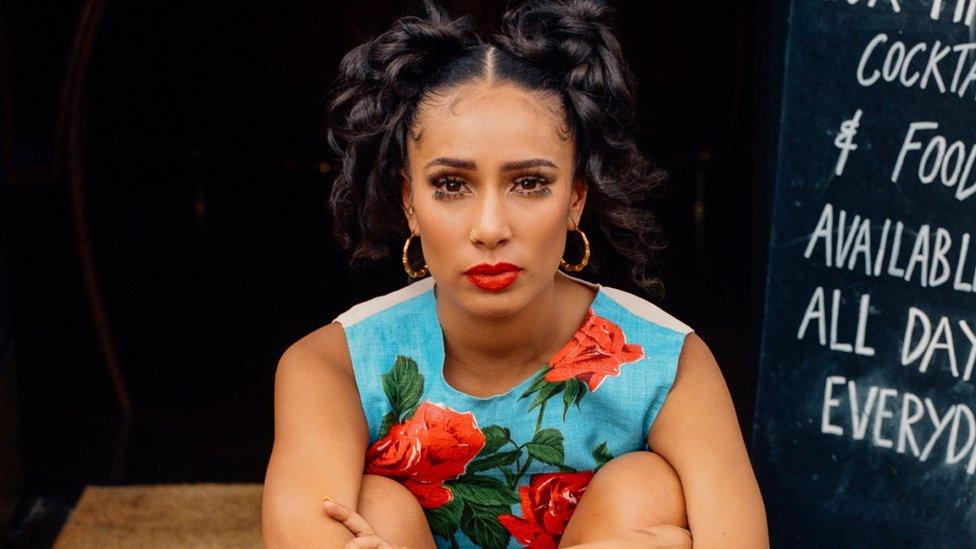
- Published3 August 2022
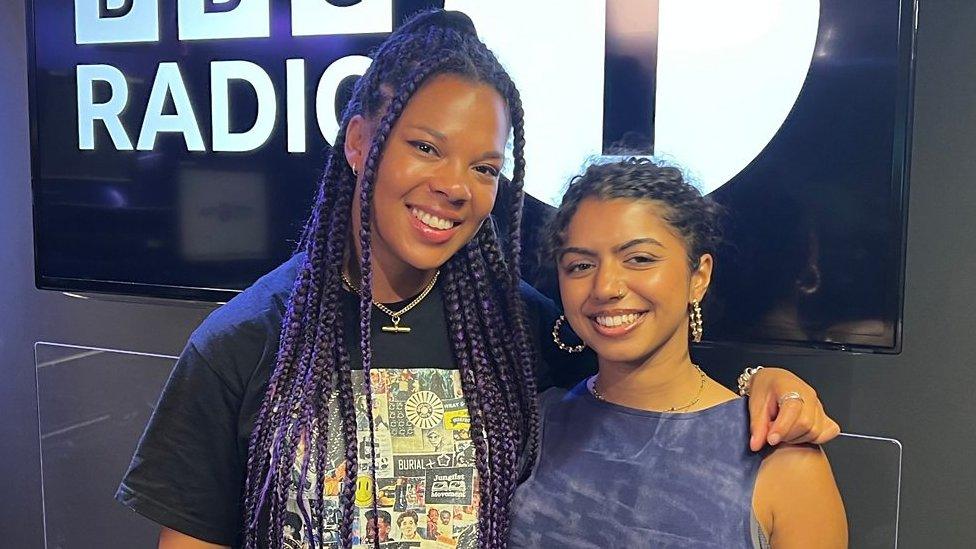
- Published2 August 2022

- Published30 December 2022
